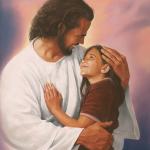This week’s podcast features Thomas Jay Oord. His latest book is called God Can’t, and the title sums up the central idea of the book pretty well. I mentioned the book in my Sunday school class last week, having already recorded the podcast and knowing it would be released this week. We found ourselves talking about the very pressing issue that drives the argument of the book, namely the tendency of religious people to interpret tragic and horrific events in a way that hurts the victims and makes God an accomplice. I personally think that both those courses of action are reprehensible, but if you have problems with either, then reading this book will help you explore the subject in a way that you’re unlikely to have encountered before, unless you’re familiar with Process Theology, which is an influence on Oord. In the podcast we talk about another possible precursor, Harold Kushner’s book When Bad Things Happen to Good People, and flesh out the important ways in which Oord’s approach and conclusions are different.
It will be interesting to see whether this kind of theological topic comes up naturally at any point in my course this semester. I am teach one semester of a First Year Seminar course focused on utopias and dystopias. It was very interesting to see how students responded to a question about what a perfect world would be like. One student mentioned things like equal access to health care and term limits for congress, which led me to ask whether, in a perfect world, there would be a need for either health care or congress/government. I was delighted, because that is precisely what I wanted to get at in the first class session: on the one hand, the differences between the paradise that people sometimes imagine and ideals that seem genuinely practical, and on the other hand, the fact that (despite the instincts some have on such matters) few people genuinely want to live in a world with no disagreement, no challenges (and thus no rewarding accomplishments), no freedom, and no individuality. That’s why dystopias are almost invariably the result of utopian aims pursued to their fullest extreme. We’ll be reading dystopian fiction such as Atwood’s The Handmaid’s Tale, Orwell’s 1984, and some Vonnegut short stories, among other things. In my first class I mentioned subjects as diverse (yet clearly related) as The Good Place and Unfair Mario (now located here). In future classes we’ll discuss capitalism, Communism, and other economic systems (see the recent AlterNet piece on the connection between capitalism and bullying). The class will balance the real world and the imagined, the latter being a form of commentary on the former. But again, I don’t know whether students will choose to dig into questions about the nature of God and omnipotence as they relate to the problem of evil.
Of related interest, Pete Enns had a post not long ago on why there is risk involved in saying that God is love. Pete will be appearing on the podcast in the not too distant future, so stay tuned! And on Jesus Creed, Denis Alexander wrestles with related issues as they intersect with evolution.














